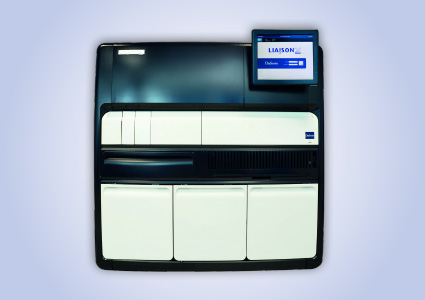- Show Menu
- Contact Us
- FAQs
- Reader Service
- Survey Data
- Survey Winners
- Testimonials
- Upcoming Events
- Webinars
Current Issue
Recent Articles

There is an aphorism that asks: How do you eat an elephant? And the answer—one bite at a time—is a concept that can be used to help guide clinical care teams working to advance crucial critical thinking skills. This is an important concept to keep in mind when facing a project with the potential to dramatically change—and benefit—the laboratory and the facilities and patients... Read more

The drug overdose crises in the United States are dynamic and pose an increasing challenge to healthcare services and to the greater public health. Recent overdose trends are heavily influenced by illicit drugs, and the volume and type of illicit drug supply is constantly and rapidly changing. With additives and other psychoactive substances emerging as adulterants, this further muddles the already... Read more

Essential to clinical core laboratory operations, chemistry analyzers and related instruments are well regarded and broadly utilized. For most labs, the number of available tests, ease of maintenance, and throughput remain top of mind when acquiring new analyzers. While use of medium- and high-volume analyzers is nearly universal, the need for low-volume devices remain.
Chemistry analyzers achieve... Read more

Coagulation analyzers are nearly ubiquitous in clinical labs (9 out of 10), and receive laudable ratings. With just under half of laboratories (49%) planning new adoptions, many facilities are utilizing multiple coagulation instruments now, and are expected to continue to do so in the near term.
Coagulation analyzers are among the most widely used technologies in the clinical laboratory.
Widely... Read more

The number of laboratories utilizing microbiology platforms has remained fairly consistent over the last few years at almost two-thirds, and yet we also see the highest expected adoption number in the last decade. Given prodigious satisfaction ratings, laboratories will have a range of options to choose from among available vendors and instrument types.
Microbiology platforms enjoy particularly... Read more
Recent Popular Articles
About Us
MedicalLab Management Ridgewood Medical Media, LLC
Quick Links
Subscribe to Our Email Newsletter!
© 2005 - 2026 MLM Magazine - MedicalLab Management.
All rights reserved.








